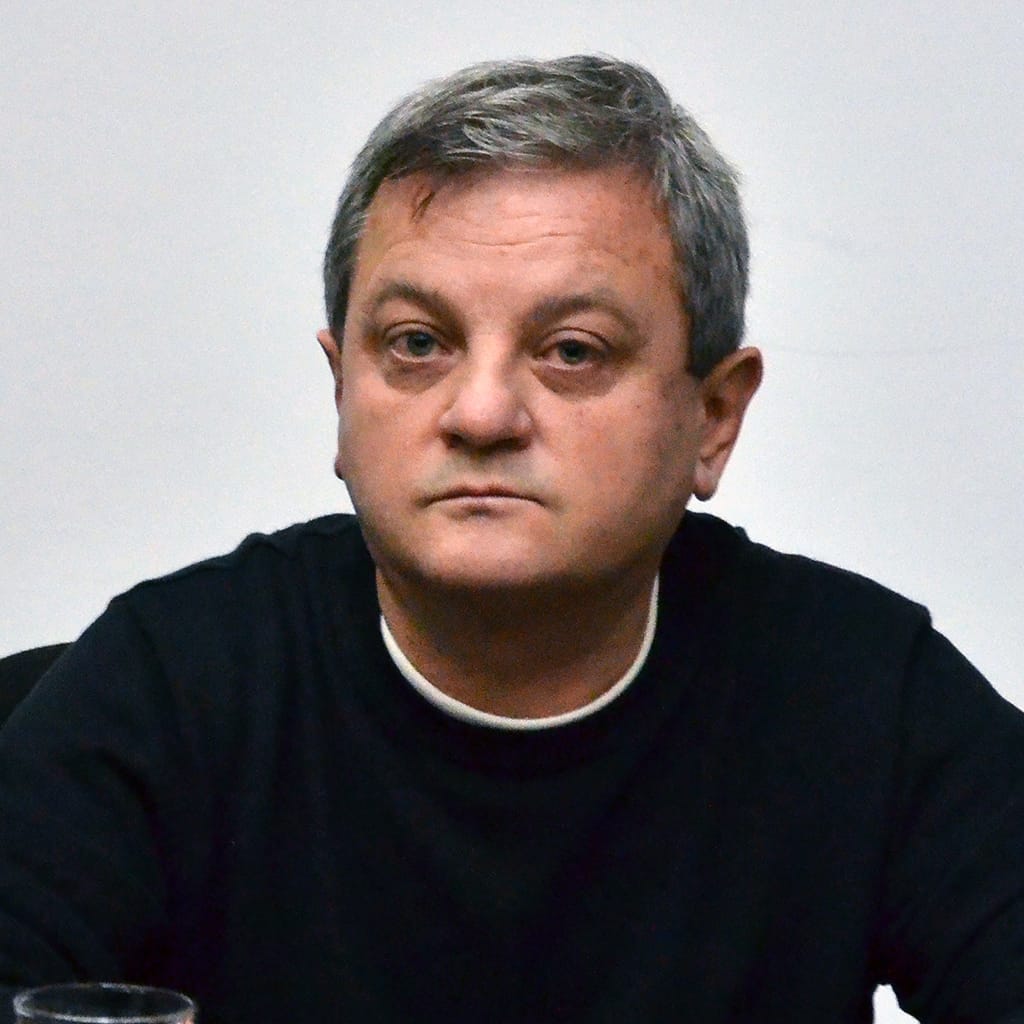
In January 2022, the Alliance for the Unity of Romanians (AUR) party published on Facebook a message opening a media “blacklist” of the “most toxic and false” newsrooms in Romania, starting with G4Media.
Party leader George Simion took responsibility for the post and told Libertatea that he did so because the publication calls them an “extremist” party.
The same publication and others also call S.O.S, the party of Diana Șoșoaca, a former AUR senator who broke away from Simion’s party two months after the 2020 elections, when they entered Parliament with 9% of the vote, “extremist”.
Not only Romanian publications call the AUR and SOS parties extremist, but also major international media, including Reuters, AFP, Politico, BBC, Euronews, The Guardian, France24, The Jerusalem Post, The Times of Israel and others.
But are AUR and SOS extremist parties?
We looked at the acts and statements of members of the two parties over the last four years and turned to the opinions of knowledgeable people to explain the historical and political features of an extremist political party.
AUR and SOS are running on the 9th of June to gain access to the European Union Parliament and to enter the administrative-territorial structures of the country. Since the split in January 2021, AUR and SOS share an electorate dissatisfied with the political class, 80% of whom have a high school or post-secondary education, mostly from religious communities, according to the electorate profile in 2020. A poll in 2022 also showed that 66% of supporters are under 50 and 40% of the electorate is employed, while 32% are unemployed.
“Extremism varies in proportions from country to country, but the components are the same”

Radu Ioanid, Romania’s ambassador to Israel, points out that a political party can be considered extremist if some or all of the following components are present in its narrative:
“Ultranationalism, anti-EU sovereignism, overt or implicit pro-Russian positions, annexationism (challenging post-WWII borders), racism, xenophobia, anti-Semitism, anti-Israelism, Holocaust denial in general, and attempts to block its surrender, denial of national responsibility in the Holocaust, cult of war criminals and fascist leaders or religious fundamentalism”, explained historian Radu Ioanid, Romania’s ambassador to Israel, to Info Sud-Est.
The historian also explained that the features of political extremism in Europe vary in weight and proportions from country to country, but its components are the same.
AUR has downplayed the Holocaust in several instances, and party leaders have publicly praised war criminals or legionary leaders on numerous occasions.
For example, AUR senator Sorin Lavric, party ideologue, praised convicted war criminals Mircea Vulcănescu and Radu Gyr and legionary leader Valeriu Gafencu in the Senate (February 2021). Jewish MP Silviu Vexler was the only MP to protest, and Sorin Lavric replied: “This is not Palestine”.
Then, the Holocaust was constantly downplayed by the AUR party. One such example was consummated in January 2021, in a press release, the AUR conveyed that Holocaust history and sex education were “minor topics” that were elevated to the rank of subjects and spoke of a “systematic action to undermine the quality of education in Romania”;
In the same month, from the floor of Parliament, Claudiu Târziu, co-president of AUR at the time, threatened Alexandru Muraru, the Prime Minister’s advisor for the Promotion of Memory Policies, Fight against Anti-Semitism and Xenophobia, saying that “he will be held accountable”, and later recalled that “if he was a legionary, you know how we would have done it, right?”. It should be noted that the Legionary movement committed a series of political assassinations that shook Romanian society during the inter-war period.
One explanation for the ease with which the Holocaust can be downplayed or publicly denied in Romania, and war criminals or legionaries can be praised without criminal repercussions, could be that the authors of such sequences feel emboldened by the way prosecutors deal with complaints in this criminal spectrum: prosecutors closed 96% of the cases solved in 2023 concerning the prohibition of racism, legionnaireism and the promotion of war criminals, according to OUG 31/2002, as an Info Sud-Est and G4Media analysis shows.
Moreover, AUR has built its own 2020 political programme on the “pillars” of hatred, homophobia, ultra-nationalism, anti-Western/EU sovereignism and ultra-religiosity, on which the party has subsequently based almost all its actions and public speeches.
Moreover, AUR has built its own 2020 political programme on the “pillars” of hate, homophobia, ultra-nationalism, anti-Western/EU sovereignism and ultra-religiosity, on which the party has subsequently based almost all its actions and public speeches.
There was no lack of repeated anti-Semitic episodes, legionary speeches and Russian rhetoric, the latter becoming blatant propaganda of the Kremlin’s criminal regime after Diana Șoșoaca’s break from AUR and the rise of S.O.S, Russia’s mouthpiece party in Romania.
There was no shortage of repeated episodes of verbal, and in some cases physical, violence, nor of serious deviations in the public discourse of the representatives of the two parties.
For example, in the AUR doctrine and discourse atheism is considered “a aberration” and gender ideology “an aberration”, the idea of formalising same-sex relationships is virulently rejected, as is the option for women to have a voluntary abortion, and the family is not “a subject for negotiation” but is made up “strictly of a man and a woman”.
In terms of the foreign policy that AUR would promote, according to the party’s doctrine and the public statements of its leaders, this would involve bringing back the notion of borders, at the expense of “globalism”, “Greater Romania” should become the leader of Central Europe (Romania being located in Eastern Europe, editor’s note), the European Union is considered “a socialist empire of federal order” with tendencies of “nefarious hegemony”, and relations with the US and NATO are omitted, minimized or marginalized. Instead, ‘fatherland is our father’ and ‘language is our mother’.
On the domestic policy front, AUR has nominated Călin Georgescu as Prime Minister, who has publicly declared that the dictator convicted of war crimes Ion Antonescu (a 1946 People’s Tribunal decision upheld by a 2008 Supreme Court decision) and the leader of the Legionary Movement responsible for atrocious murders, Corneliu Zelea Codreanu, “are heroes through whom national history speaks and has spoken and not through the lackeys of the globalist powers that today temporarily rule Romania”. Following a major public outcry over his statements about war criminal “heroes”, Georgescu withdrew. AUR later announced that it was considering Dan Puric, an actor with an ultra-nationalist discourse and blatant pro-Russian rhetoric, among others, for the presidency.
“Demagoguery is the most burning”

From another perspective, political scientist and historian Ioan Stanomir believes that the discussion of extremism is complicated, but it is demagogy in public discourse that primarily defines a party’s radicalism: it involves simple solutions to complicated problems:
“The discussion of extremism is a rather complicated discussion from an intellectual point of view, but it is certain that we can have some indications of how these parties relate to the rule of law, to the rule of law, to democratic values in general. So basically, if we were to look for a fundamental criterion for defining political radicalism, it would be a tendency to give simple answers to very complex problems of our societies”, explains Ioan Stanomir.
The professor points out that demagogy is also the most dangerous element in the discourse and public actions of extremist parties:
“The problem of demagogy is the most burning one. Demagogy suggests that there are simple solutions, that these simple solutions are in the possession of providential politicians, and the results for societies that follow this path of demagogy are dramatic”, he added.
Continuing the idea of “simple solutions to complex problems”, Ioan Stanomir also points out that the violence of language present in the statements of many representatives of radical parties shows precisely the impatience to find solutions appropriate to the complexity of a society:
“The violence of language is an important criterion in assessing the radical character of some parties, because the violence of language denotes a certain impatience in imposing solutions and a certain inability to understand the complexity of society”, says the political scientist.
On the issue of violence, both AUR and SOS, and more recently especially between the two parties, have seen a wide range of episodes of aggression, even in the plenary of the Parliament, in public institutions or in other public spaces.
For example, members of the AUR party have made organized visits to the homes of various politicians, including some of the homes of President Klaus Iohannis, reminiscent of the actions of the Legionaries in the inter-war period.
Then, in the Parliament, there was a long series of scuffles, forced evictions, threats, insults and personal attacks between AUR parliamentarians and those of PNL or PSD, between AUR and SOS or, more recently, between the two factions of SOS, represented by Diana Șoșoacă and her husband Silvestru.
Click on the arrows below or swipe to see the timeline
From the point of view of political scientist Ioan Stanomir, AUR and S.O.S are extremist parties and show that they have in common a radical vision of society and solutions for the community, and points out that Diana Șoșoaca is even “clearer in her pro-Russian options” than George Simion:
“(Can AUR and S.O.S be considered extremist parties?, ed.) Definitely. Both parties have something in common: This radical vision of society and of solutions. I would say that the SOS Romania party is even more radical in its language than the AUR party, because Mrs. Șoșoaca is even clearer in her pro-Russian options than George Simion”, concluded political scientist Ioan Stanomir.
Diana Șoșoaca has recorded open episodes of support for Russia, from her participation in events organised by the embassy to the visit she made on her own initiative shortly after the invasion of Ukraine. The head of the S.O.S. justified her gesture by saying she wanted to guarantee “Romania’s neutrality as a senator, instead of President Iohannis”, whom she criticised for not going to the embassy to represent his country to Russia.
She has given anti-EU interviews in the Russian media and was named “person of the year” in 2021 by Sputnik, the Kremlin’s mouthpiece.
During her interview with former Fox News journalist Tucker Carlson, dictator Vladimir Putin suggested that Romania could claim territory in Ukraine.
At the same time, Claudiu Târziu, one of the leaders of AUR, has repeatedly made a revisionist speech in the midst of the war on Romania’s border. He called for the union with Ukrainian territories, following the Shkosha model.
“Fear triggers the need for security, for stability, for a return to <the golden age>”

Historian Florin Anghel also agrees that extremism is hard to define and points out that, over the decades, the definition of extremism has covered different realities, but what has remained constant in all of them is tyranny:
“Extremism is hard to define,” wrote historian Timothy Snyder in a book on tyranny in Europe. In the history of the 20th century, anti-fascist and anti-Nazi resistance was labelled extremism by regimes in power. Later, anti-communist dissidents were branded as extremists by the ruling powers. Today, dictatorial or authoritarian regimes, such as Vladimir Putin’s in Russia, use the law to crack down on “extremists”, i.e. anyone who does not support the government. As a historical evolution, the definition of extremism has always covered other realities, but it, the definition, has remained constant in showing what extremism actually means, i.e. tyranny,” says Florin Anghel.
The historian reviews the moments when extremism took root in Romanian society and explains that this was possible when unprecedented historical changes took place or when they aroused fear of the immediate future.
Anghel identifies the sequences that cultivated fear or gave rise to new historical realities in Romanian society and that marked the political rise of extremism over the last century.
AUR and SOS exploited the fear of the population and the unknown element of the COVID-19 pandemic to the full and escalated the attacks in several situations.
In some of the most notorious episodes, Diana Șoșoacă blocked the activity of a vaccination centre and ended up with a criminal file at the DIICOT for thwarting the fight against the pandemic, and AUR leaders led by George Simion forced their way into a meeting of the Health and Legal Committees after shoving PNL Senator Daniel Fenechiu. The meeting was debating the introduction of the COVID-19 green certificate for state and private employees.
Last but not least, Diana Șoșoacă is the perpetrator of several episodes of verbal and emotional aggression of health professionals in the COVID-19 pandemic.
In another episode, a journalist was hit by a man during the AUR protest at the Ministry of Health against “compulsory vaccination” in August 2023, although at the time society had long forgotten about the pandemic.
Historian Florin Anghel points out that it is fear that triggers the need for security, stability and a return to the “golden age”, as the decades of communist dictatorship are perceived:
“Extremists promise law, promise order, promise peace. In addition, AUR and SOS Romania also promise a return to tradition. It is the foreigners who are to blame for the failure of national and political projects and ambitions,” says Anghel.
The professor also points out how in their speeches about how MEPs “hatch criminal ideologies”, the representatives of extremist parties omit or fail to take into account the fact that MEPs are elected by democratic vote, just as political majorities are formed according to which parties get the most votes from the electorate. Just as their parties with extremist rhetoric also got into Parliament, also by vote:
“Mrs Diana Șoșoaca criticised the “invasion” of foreigners “at the head of the country”, “put in public office by Washington, Brussels and Tel Aviv”. Mr Claudiu Târziu believes that Brussels “is where the fate of the subject peoples is decided, where criminal ideologies are hatched, where the new heads of state and government are anointed, where the tribute is paid”. These two statements do not take into account the democratic vote, the one that brought them to Parliament and gave them tools for official communication with the whole society“, explained historian Florin Anghel.
Both parties have had several aggressive public outbursts against the West and NATO, with Șoșoacă stressing several times that Romania should not side with the US or NATO (Romania has been a member of the alliance since 2004), but also that President Klaus Iohannis would serve “the interests of Austria and Germany, which is selling the country for a NATO job”.
In another episode, US and Japanese embassy cars were destroyed in the December 2021 assault on Parliament organised by AUR leaders, led by George Simion, which resulted in violence.
But will Romanian political extremism disappear? And if so, how, when and why?
“The end of this new adventure of Romanian political extremism will come with the disintegration of the dictatorial powers that fuel the discourse, impulses and ambitions of AUR and SOS Romania. The end of the political careers of Vladimir Putin, Viktor Orban or Xi Jinping will also extinguish this episode. But it will be rekindled in another historical phase, with the same message, with the same dictatorial or authoritarian states, but with different Romanian protagonists”, concluded historian Florin Anghel.
Ne bucurăm că ne citești!
Dacă vrei să ne și susții:






